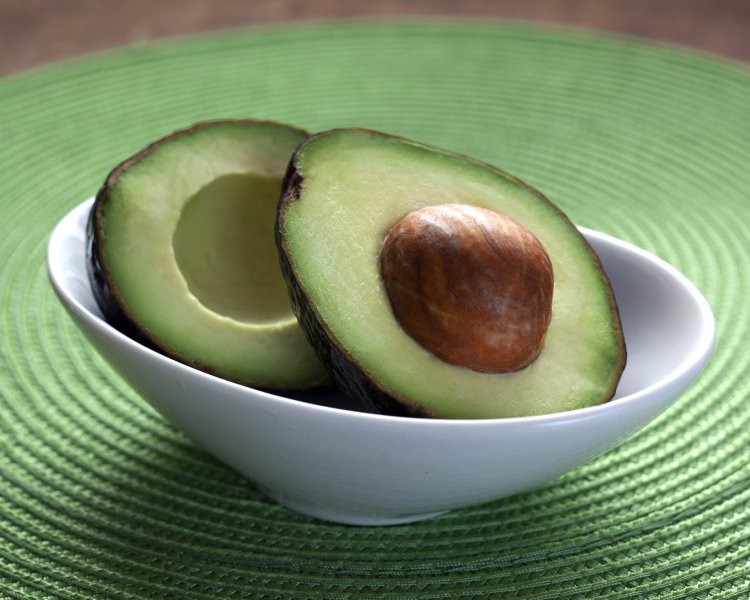How to build your immune system with avocado
Having a strong immune system is essential in order to fight off disease and avoid illness.

What is immune.
The immune system is our main defense against illness and infection. It helps to keep us healthy and produces a range of responses to protect us from both foreign and indigenous organisms that are harmful to our body. Having a strong immune system is essential in order to fight off disease and avoid illness.
Here are some of the key benefits of having a strong immune system:
1. Improved resistance to infectious organisms: A strong immune system is able to better identify and respond to foreign infectious organisms that can produce a range of illnesses, such as colds and flu.
2. Increased life span: Frequent illnesses or infections can reduce lifespan, but having a strong immune system can help you live longer.
3. Faster recovery from infections or illnesses: A strong immune system is able to more efficiently respond to infection or illness and produce the specific defense needed to quickly fight it off.
4. Improved physical health: A robust immune system is less likely to have frequent bouts of illnesses and infections, which allows for better physical health and improved performance.
5. Reduced risk of autoimmune diseases: Having a strong immune system reduces the chances of developing autoimmune diseases, which are conditions when the body’s own immune system attacks various parts of the body.
6. Higher energy levels: A strong immune system is more efficient at coping with everyday strains and stress, thereby providing more energy and better overall concentration.

Having a strong immune system can bring a range of benefits and improved overall health. Some of the ways to boost the immune system and support it throughout everyday life include: eating a healthy, balanced diet; exercising regularly; minimizing stress; getting enough sleep; and maintaining a positive attitude. All of these factors combined can help you maintain a strong immune system and better protect yourself from illness and infection.
What is avocado.
Avocados are small, pear-shaped fruits native to tropical climates, such as Mexico and parts of Central and South America. The fruit has a green, creamy flesh, and typically a thick, inedible skin. Avocados are now widely available in most grocery stores year-round, and have become a popular food item due to their numerous health benefits.
Part of the reason for the uptick in avocado’s popularity is the fruit’s health benefits. Avocados are high in fiber and a good source of healthy fats and vitamins such as vitamin K, folate, vitamin C, and vitamin E. They are also packed with potassium, which may help lower blood pressure. Avocados are described as nutrient-dense and are low in calories, helping people lose weight and keep it off.
Avocados can be eaten in many different ways. While they are often thought of first as an ingredient in guacamole, they can be used in salads, sandwiches and smoothies. Avocado toast has recently gained in popularity and can be made by simply toasting some bread and then topping it with mashed avocado, a drizzle of olive oil, and a sprinkle of salt.
Avocados are easy to eat and prepare, and their versatility makes them a great addition to any meal. With all the health benefits of avocados, it’s no wonder that they are so popular. With a bit of creativity, you can incorporate them into almost any dish for an extra boost of nutrition.
Health Benefits of avocado.
Avocados are a fruit loaded with potential health benefits. Not only are avocados a great source of dietary fiber and vitamin C, but they are also loaded with healthy fats and other key nutrients that can help improve dietary health and prevent certain diseases and ailments.
Avocado is an excellent source of monounsaturated fatty acids, also known as MUFA, which have been shown to reduce bad cholesterol, lower the risk of heart disease, and improve skills related to good cholesterol management. Avocados are also a great source of potassium, which helps reduce the risk of stroke and can help reduce blood pressure.

Avocados are one of the few fruits that contain heart-healthy monounsaturated fat, along with other key vitamins and minerals. This means that consuming avocados can help you maintain a healthy weight and reduce the risk of obesity. Avocado is also rich in carotenoids, which have antioxidant properties and can help fight free radicals that damage cells and contribute to aging.
Avocado is also a good source of omega-3 fatty acids. Omega-3 fatty acids can help reduce inflammation and reduce the risk of cardiovascular disease. It can also help reduce the risk of depression and improve cognitive functioning.
Avocado also contains lutein and zeaxanthin, which are carotenoids that can help improve vision and prevent cataracts and age-related macular degeneration. Avocados are also a good source of folic acid, which is important for fetal development in pregnant women and can help reduce the risk of birth defects.
From assisting in healthy weight management to providing a boost of essential nutrients, avocados can be a great addition to any diet. Thanks to its rich nutrient profile, studies have shown that consuming avocados can help improve cardiovascular risk factors and reduce the risk of certain diseases.
How build your immune with avocado.
Avocados are notable for their high levels of Vitamin C, which is essential for immunity-building. Quercetin and carotenoids, two antioxidant compounds, also have anti-inflammatory and anti-infective benefits. Vitamin E, a fat-soluble vitamin, is another important nutrient found in avocados, which may help fight infection and reduce oxidative stress.
In addition to these individual nutrients, avocado is also rich in healthy unsaturated fats which can help increase energy levels and aid with digestion. This can increase the body's ability to absorb essential antibodies and other immune-boosting nutrients.
The greatest impact of avocado on immunity is its ability to help balance the body's gut bacteria. A healthy gut microbiome is essential for proper digestion and effective absorption of nutrients, important for proper immune response. Eating a balanced, nutrient-rich diet of minimally processed foods can help promote a healthier gut and therefore a stronger immune system.
Incorporating avocado into your diet is easy and delicious. Consider adding smashed avocado as a spread on toast or trying diced avocado in a salad or simply adding it as a side with a main meal. The possibilities are endless when it comes to this tasty fruit.
Overall, eating avocado can help increase immunity by providing essential nutrients, balancing the gut bacteria and providing healthy fats that aid digestion. Enjoy an avocado as part of a balanced diet for maximum immune-building benefits.
Caution.
Avocado may be a popular superfood, but caution is required when consuming the fruit. Avocado has been linked to foodborne illness, as some varieties of the fruit can carry a listeria bacteria, salmonella and E.coli. It is best practice to avoid eating any avocados that appear discolored, have spots or look slimy.
When buying avocados, opt for those that are firm to the touch and are light or dark green in color. When cutting open an avocado, it is important to take care to ensure the knife does not come into contact with the pit inside the avocado, as it can contain high levels of bacteria.
It is important to store avocados in the refrigerator to help reduce bacterial growth, as the cold environment can slow down the growth of foodborne bacteria. Avocados should also be kept away from other produce and cooked foods, as it is easy for bacterial spores to transfer from one item to another.
When consuming avocado, make sure it has been properly washed and scrubbed with a vegetable brush. Additionally, all utensils and cutting surfaces should be cleaned with hot, soapy water to reduce the risk of bacteria contamination.
Ultimately, avocados can be a healthy, nutrient-rich fruit, but care should be taken to ensure safe handling and consumption of the fruit. Taking the appropriate precautions can reduce the risk of foodborne illness and ensure a safe and healthy diet.












